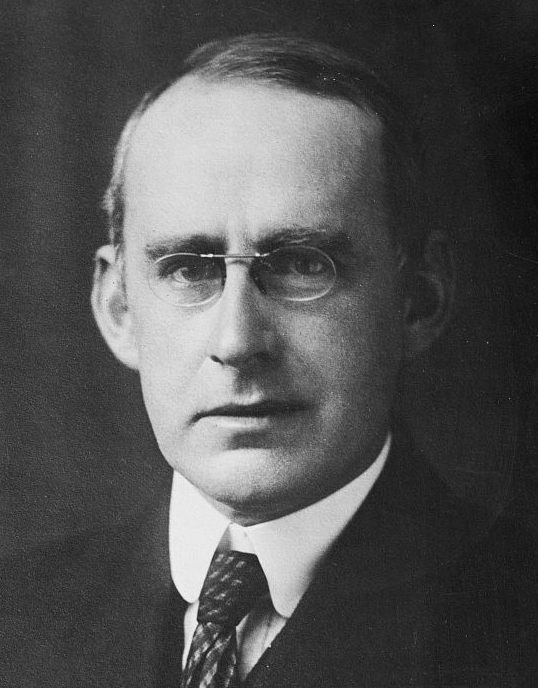“Schrödinger's wave-mechanics is not a physical theory, but a dodge — and a very good dodge too.”
The Nature of the Physical World (1928)
Arthur Stanley Eddington, OM foi um astrofísico britânico do início do século XX.
O limite de Eddington foi assim chamado em sua homenagem.
Eddington é famoso pelo seu trabalho sobre a Teoria da Relatividade. Eddington escreveu um artigo em 1919, Report on the relativity theory of gravitation, que anunciou a Teoria Geral da Relatividade de Einstein para o mundo anglófono. Devido à Primeira Guerra Mundial, os novos desenvolvimentos da ciência alemã não eram muito bem conhecidos no Reino Unido.

“Schrödinger's wave-mechanics is not a physical theory, but a dodge — and a very good dodge too.”
The Nature of the Physical World (1928)
pp. 56–57 https://books.google.co.uk/books?id=KHyV4-2EyrUC&pg=PA56
The Expanding Universe (1933)
Science and the Unseen World (1929)
Science and the Unseen World (1929)
Science and the Unseen World (1929)
Science and the Unseen World (1929)
Fonte: The Nature of the Physical World (1928), Ch. 13 : Reality
Fonte: The Nature of the Physical World (1928), Ch. 12 : Pointer Readings
The Internal Constitution of Stars (1926)
[…] Let us then take the whole universe as our standard of constancy, and adopt the view of a cosmic being whose body is composed of intergalactic spaces and swells as they swell. Or rather we must now say it keeps the same size, for he will not admit that it is he who has changed. Watching us for a few thousand million years, he sees us shrinking; atoms, animals, planets, even the galaxies, all shrink alike; only the intergalactic spaces remain the same. The earth spirals round the sun in an ever‑decreasing orbit. It would be absurd to treat its changing revolution as a constant unit of time. The cosmic being will naturally relate his units of length and time so that the velocity of light remains constant. Our years will then decrease in geometrical progression in the cosmic scale of time. On that scale man's life is becoming briefer; his threescore years and ten are an ever‑decreasing allowance. Owing to the property of geometrical progressions an infinite number of our years will add up to a finite cosmic time; so that what we should call the end of eternity is an ordinary finite date in the cosmic calendar. But on that date the universe has expanded to infinity in our reckoning, and we have shrunk to nothing in the reckoning of the cosmic being.
We walk the stage of life, performers of a drama for the benefit of the cosmic spectator. As the scenes proceed he notices that the actors are growing smaller and the action quicker. When the last act opens the curtain rises on midget actors rushing through their parts at frantic speed. Smaller and smaller. Faster and faster. One last microscopic blurr of intense agitation. And then nothing.
pp. 90–92 https://books.google.co.uk/books?id=KHyV4-2EyrUC&pg=PA90
The Expanding Universe (1933)
The external world of physics has thus become a world of shadows. In removing our illusions we have removed the substance, for indeed we have seen that substance is one of the greatest of our illusions. Later perhaps we may inquire whether in our zeal to cut out all that is unreal we may not have used the knife too ruthlessly. Perhaps, indeed, reality is a child which cannot survive without its nurse illusion. But if so, that is of little concern to the scientist, who has good and sufficient reasons for pursuing his investigations in the world of shadows and is content to leave to the philosopher the determination of its exact status in regard to reality. In the world of physics we watch a shadowgraph performance of the drama of familiar life. The shadow of my elbow rests on the shadow table as the shadow ink flows over the shadow paper. It is all symbolic, and as a symbol the physicist leaves it. Then comes the alchemist Mind who transmutes the symbols. The sparsely spread nuclei of electric force become a tangible solid; their restless agitation becomes the warmth of summer; the octave of aethereal vibrations becomes a gorgeous rainbow. Nor does the alchemy stop here. In the transmuted world new significances arise which are scarcely to be traced in the world of symbols; so that it becomes a world of beauty and purpose — and, alas, suffering and evil.
The frank realisation that physical science is concerned with a world of shadows is one of the most significant of recent advances.
Introduction
The Nature of the Physical World (1928)
Space, Time and Gravitation (1920)
Space, Time and Gravitation (1920)
Space, Time and Gravitation (1920)
New Pathways in Science: Messenger Lectures 1934 (1947), p. 211.